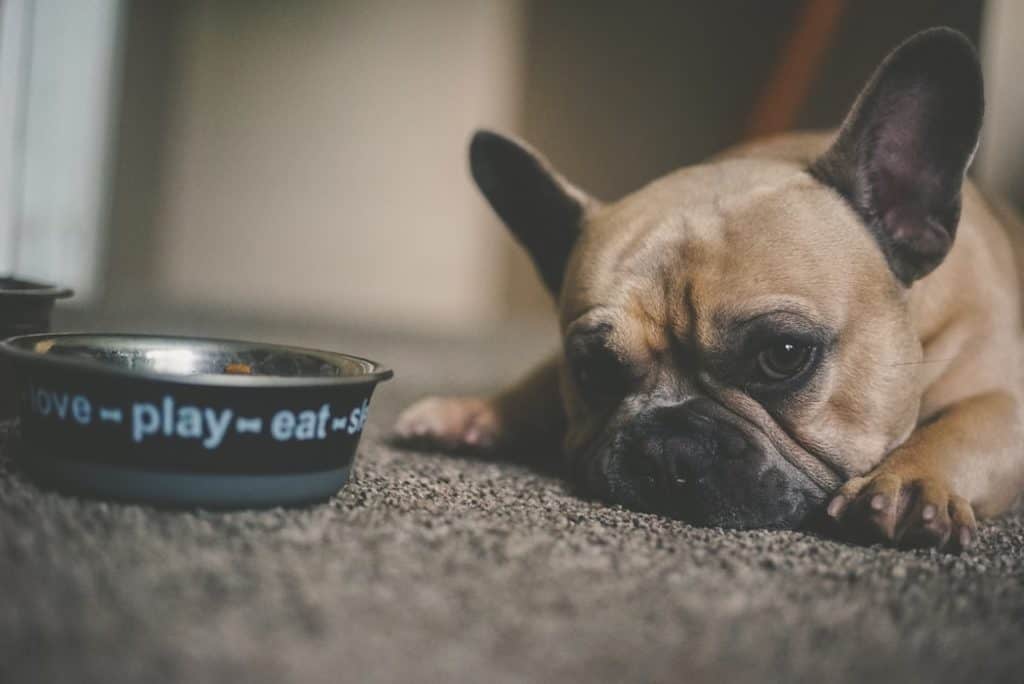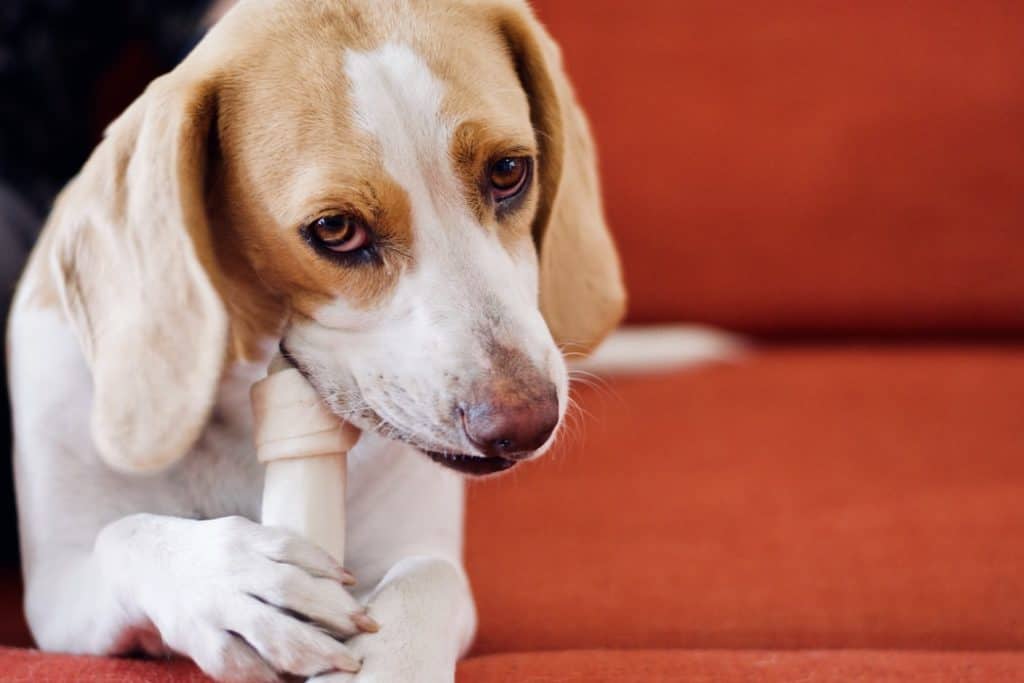Dogs that suffer from food anxiety will show some behavioral changes. In some cases, they can even turn aggressive. In order to prevent any damages or accidents, it is best to learn how to fix anxiety in dogs before things run out of control.
How to Fix Food Anxiety in Dogs
We can start by watching our dogs for symptoms and new changes in their behavior. If we notice our dogs start to exhibit self-injurious or destructive behavior, changes in their expression or posture, or even problems urinating and defecating; identifying anxiety in our dog will be the first step to alleviate it.
Once we’ve identified any of several symptoms, it is best to follow these tips to avoid the condition from getting worse.
Scheduling a Feeding Routine
Long waiting times between each meal will cause dogs to develop food anxiety. If we are feeding your dogs only once a day, then this will intensify their longing. As a result, our dogs will eat fast and even overfeed themselves to immediately ease the hunger and as preparation for the next waiting time.
Instead of feeding our dogs once a day, we can divide their daily ration into two to three parts. It is better to feed the dogs a number of times a day in smaller portions than feed them a big serving all at one time.

- How Much Should You Feed Our Dog: Consult with a veterinarian that knows the dog to know the right amount of food to give our dog every mealtime. The amount of food our dogs should eat depends on their body weight and how active they are.
- How Often Should You Feed Our Dog: Feed our dogs at least two times a day with intervals of 8 to 12 hours per meal. While we can just keep their food tray full so they could eat whenever they like, this is not usually the best approach, especially for overweight dogs. In addition, doing so can attract rodents and pests.
- Timing Feeding: We can develop a routine for dogs to learn to cope up with anxiety on feeding times. We can give them at least 30 minutes to finish their food before emptying their food trays. We can do these every feeding time until they get used to the routine.
Feeding our Dogs in Separate Areas
For households with many dogs, feeding time can be a disaster sometimes. Avoid this and food anxiety in dogs by feeding them in separate areas.
Feeding our dogs in separate areas in different containers will reduce their anxiety over having to guard their resources. For sure, some dogs can be bullies during mealtime. You might want to assign a specific area for every dog or feed each in their kennel.
In addition, feeding our dogs away from each other will encourage a balanced meal. Our dogs will only consume what is on their tray by not having access to other feeding bowls.
Ensuring a Calm Environment on Feeding Times
A calm environment will help improve a dog’s appetite and reduce food anxiety. We can try not to disturb your dogs while they are eating. As much as possible, do not come near them or they might assume that feeding time is up and that we are taking away their food bowl.
Feeding our Dogs Well-Balanced Meals
Giving our dogs high-quality feeds and well-balanced meals should help reduce food anxiety. Like humans, dogs need enough amounts of vitamins and minerals for healthy mental health.
We can feed our dogs foods that are rich in:
- Antioxidants: help ease the effects of anxiety
- B vitamins: controls stress levels
- Omega3 fatty acids: helps maintain adrenaline production
- Magnesium: improves the nervous system and “feel-good chemicals”
Reduce Protein Intake
There is a link between protein and anxiety in dogs. Veterinarians agree that too much protein causes aggression, anxiety, and even obesity. If we are seeing symptoms of anxiety on our dogs, one way to ease them is by reducing the protein in our dogs’ diet.
Dogs have a daily protein requirement of 18 percent. Working dogs need a higher level which is at 25 percent, whereas racers or sled dogs need 35 percent.
Causes of Food Anxiety in Dogs
In a study published by the Scientific Reports, around 75 percent of 13,700 dogs that participated show at least one symptom of anxiety. One of the easiest ways to tell the difference is by identifying the cause behind the anxiety.

Many factors cause food anxiety to develop including:
Breed
One of the main reasons for food anxiety is the breed. German Shepherds, Bichon Frise and Labrador Retrievers are more likely to suffer from anxiety. However, Labradors are known as the most voracious eaters. They are always hungry and do not self-regulate when it comes to eating.
Inconsistent Feeding Times
If you feed our dogs only once a day, then the waiting times for them are too long. Longing causes them to feel anxious. In the same way, if we don’t feed our dog on a routine, it makes them anxious with both longing and uncertainty.
Unpeaceful Environment
An environment that is noisy and crowded does not contribute to healthy feeding. The same goes when there are many dogs to feed at the same time. There are several factors that can make your dogs’ environment unpeaceful.
Noise, disturbances, and competition in an environment where the dogs eat have effects on their mental health. Noise is in fact the leading cause of anxiety in dogs. Sudden noise interruptions cause anxiety in dogs making them either stop eating or consume their dry food immediately.
Dogs can feel distracted by the presence of other animals or people in the same space where they eat. They might assume competition as other dogs come closer and will not be able to relax. They may also mistake people coming near them as a signal that mealtime is over.
Conclusion
Dog owners must develop a feeding routine, ensure a calm environment for the dogs, and feed them away from each other to fix anxiety in dogs. Feeding them well-balanced meals and reducing protein in their diet will also reduce stress and anxiety in dogs.
